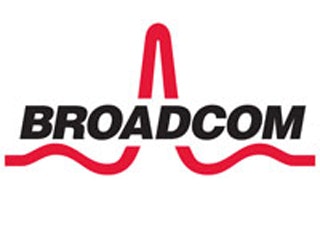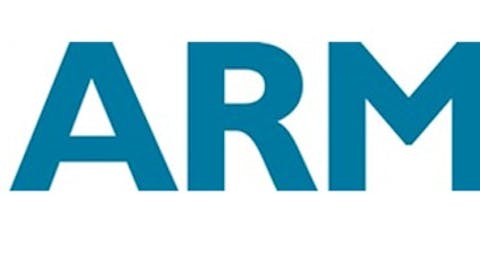Academic research has shown that insider purchases on average outperformed the market over the following 12-month period. On the other hand, insider sales are usually not informative. This is because most insider sales are motivated by diversification or liquidity needs. Therefore, insider sales really do not mean much compared with insider purchases.
However, recent research on insider sales has shown that stocks sold under the 10b5-1 plans have large negative abnormal returns. The magnitude of the abnormal returns is about 70 basis points per month calculated by using Carhart’s four factor model. In this article, we are going to discuss a few large-cap stocks that insiders are selling like crazy under 10b5-1 plans in the past week. All companies have at least $5 billion market cap.

Broadcom (BRCM): Four insiders sold BRCM in February. Eric Brandt sold 2,500 shares at $37.1 per share on February 6. On the same day, Robert Rango sold 8,100 shares at $37.13. Rango also sold 2,700 shares at $37 per share on February 1. Two other insiders, William Morrow and Henry Samueli, also sold 2,216 shares and 200,000 shares respectively at around $36 per share on February 1. Rango, Smueli, Morrow, and another insider, John Major, also sold a large amount of BRCM shares in January. Today BRCM is trading at $37.17 per share. Since the beginning of February, the market was up 1.57%. BRCM’s price almost did not change in this period. Over the third quarter, a few hedge funds sold out their BRCM stakes, such as Andreas Halvorsen’s Viking Global. George Soros and Jim Simons are also no longer bullish about BRCM. We don’t think these insider sales are motivated by negative inside information or expectations. First, Broadcom’s current PE ratio is higher than 20, but its forward PE ratio is around 12. Second, The stock is positively affected by the increases in Apple’s (AAPL) sales because Apple uses Broadcom’s chips in its products. Third, BRCM also has greater dependence than most other companies on stock-based compensation. As a result of this we see very large insider sales in the company. Fourth, there was a recent insider purchase. Whenever, there is a large insider purchase, that offsets the negative signals sent by insider sales. Overall, I wouldn’t sell Broadcom because of the recent insider sales. However, I wouldn’t buy the stock because of the mobile revolution. I’d rather buy Apple.
Edwards Lifesciences (EW): Similar to BRCM, EW was also sold by four insiders under the 10b5-1 plans in February. On February 6, Michael Mussallem sold 35,000 shares at about $71 per share. Huimin Wang also sold 10,240 shares at prices ranging from $70.76 to $72.45 on the same day. John Kehl sold 15,000 shares at around $81 per share on February 2, and Patrick Verguet sold 6,000 shares at $82.67 at the beginning of February. Mussallem, Wang, Kehl, Verguet, and three other insiders also sold a large amount of EW shares in January. Now EW is trading at $73.67 per share. EW’s current price is much lower than its price at the beginning of February, but it is still higher than the prices Mussallem and Wang sold at. We also recommend investors to be careful about this stock. The medical equipment and supplies industry is highly competitive. The company is faced with the threat from not only existing competitors, but also new entrants to the market. In order to maintain its competitive strength, EW has to keep developing new products and improving old ones. Edwards Lifesciences is expect to earn about $2.75 per share in 2012 and $3.50 in 2013. Its trailing PE ratio is 37. If everything goes according to plan its 2013 forward PE ratio is 21. This is quite rich for a value investor like us. Apple is growing like a weed too. They are not in the same industry but Apple’s 2013 forward PE ratio is in single digits. We wouldn’t buy Edwards Lifesciences at these prices. We actually think the stock is likely to underperform the market over the long-term. Some of the prominent hedge funds like Jim Simons’ Renaissance Technologies and Steven Cohen’s SAC Capital Advisors sold out their EW stakes over the third quarter.
Rackspace Hosting (RAX): RAX was sold by four insiders in February. James Bishkin sold 4,600 shares at $48.2728 on February 6. Bishkin also sold 2,500 shares at $46.0088 on February 3. Another insider Lew Moorman sold 11,750 shares of RAX at $42.4273 and another 63,000 shares at $47.4273 on February 3. Moorman also sold 2,250 shares of RAX at $44.084 two days earlier. Patrick Matthews also sold 5,000 shares at $43.5743 on February 3 and another 5,000 shares at $43.9981 on February 1. And Wayne Phillip Roberts sold 4,000 shares at $44.0013 at the beginning of February. Today RAX is trading at $49.62 per share, even higher than the prices these insiders sold at. However, we do not like RAX. It has an extremely high P/E ratio of 105.57 and a high forward P/E ratio of 61.26. Its other multiples, such as PEG, P/B, and P/FCF, are also not attractive. Its expected EPS growth rate over the next five years is similar to Edwards Lifesciences but its PE ratio is almost three times higher. If we were managing a long/short portfolio, RAX would have been one of the stocks we short. Over the third quarter, Cliff Asness’ AQR Capital Management and Israel Englander’s Millennium Management both sold out their RAX stakes.
A few other large-cap stocks that insiders are selling under 10b5-1 plans are Equinix (EQIX), Tractor Supply Company (TSCO), and Ashland (ASH). But their insider sales are much smaller compared with the three stocks we discussed above. They were also only sold by one insider in February, versus four insiders for RAX, EW, and BRCM. Therefore, we think the insiders sales signals for EQIX, TSCO, and ASH aren’t significant enough for a closer look. But we will be tracking these stocks closely and report additional insider sales by the same insiders or other insiders.



